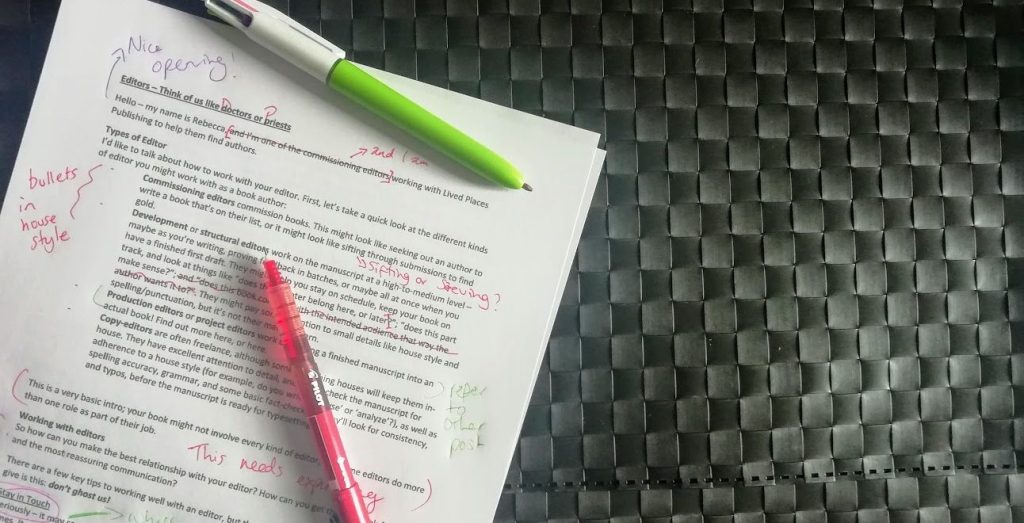The Lived Places Publishing Revenue Sharing Model
A commitment to equity and fairness begins with our revenue sharing model. At Lived Places Publishing, we designed our publishing model based on discipline-based and interdisciplinary collections of course readings, led by collection editors. Our collection editors take responsibility for the thematic direction of the collection, author recruiting, and editorial guidance for authors as they move through the writing process. Each Lived Places title is approved by the collection editor and carries the collection editor’s name along with the author’s name. Lived Places authors are asked to conceive of and deliver books appropriate for course reading content that (a) fit well within the collection or collections of choice and (b) highlight the intersection of identity and place or context.
Equity Means Equity
The history and practice of author royalty in book publishing are a challenge to follow and rationalize, especially when viewed across time and industry changes. For example, there has been significant divergence between print and ebook royalty and between scholarly and trade publishing. Over the arc of my 25-year publishing career, I have seen author royalty range from as low as 2% to as high as 25%. I have heard publishers make different arguments for lower royalty rates based on print versus ebooks, the dynamics of the addressable market (e.g. narrow and niche or wide), and the level of investment in promotion, marketing, and sales organization incentives.
At Lived Places Publishing we believe that equity means that a fair royalty be paid to all of our collection editors and authors, irrespective of the many variables the publishing industry has historically called on to support low royalty.
Funding Open Access with LPP Revenues
The Lived Places Publishing revenue sharing model extends to Open Access as well. We believe that the revenue we generate must also sustain our efforts in Open Access publishing. Specifically, we do not believe that book processing charges (BPCs), based on underwriting all publishing organizational costs (and inefficiencies?), are fair for authors. The BPC was established to offset the cost of publication and/or the average expected revenue the title will generate. In either case, this model has produced widely divergent BPCs across academic publishing.
At Lived Places Publishing, we allocate a percentage of each sale to funding Open Access publishing at our average production cost, not inclusive of foregone, expected revenue. We publish these costs semi-annually on our website for all to see. The LPP Open Access funding model is tied to our revenue generation, based on production cost only, and offered to authors at no institutional cost when Open Access publishing is preferred to receiving an author royalty. It is an opt in/opt out model and offered on a first in/first out basis; not every book in our funding queue can be made Open Access.
Funding Open Access with a Fair and Reasonable BPC
For those authors that have a funding source and are not able to take advantage of our LPP revenue funded Open Access option, we offer a fair and reasonable BPC, which is the most recent average production cost published on our website plus a 10% administration fee. We expect this will mean a BPC of between $1000 and $2000 at the uppermost limit.
A Transparent View into LPP Revenue Sharing
The Lived Places Publishing view on equity in revenue sharing is predicated on a belief that all authors and all collection editors deserve an equal percentage of sales and a royalty that is at the highest end of industry standards. We also believe our revenue sharing model must support open access publishing in a sustainable model that does not require added fees paid by the institutions supporting the authors. And we believe that this information should be transparent.
If you like what you hear, follow our progress here. Hold us accountable and challenge us to remain true to our convictions as we build Lived Places Publishing. If we’re successful, we’ll challenge the rest of the industry to amend their practices.
Sincerely,
David Parker, Publisher
P. S. We are actively seeking authors and collection editors, please get in touch if you are interested.
IMAGE CREDIT: Sheri Silver, used under the Unsplash License



